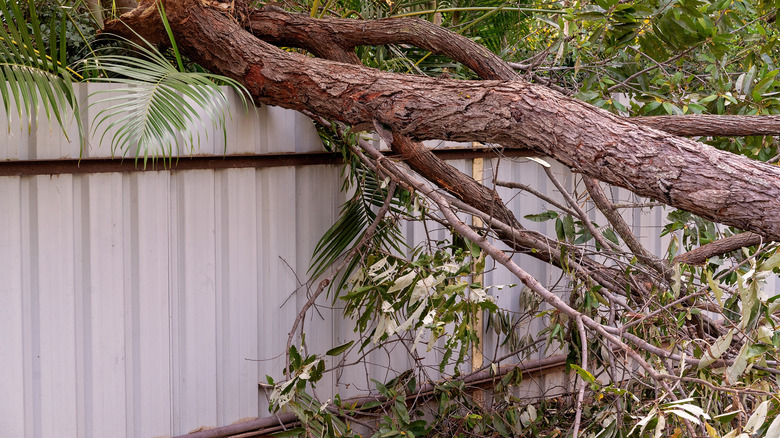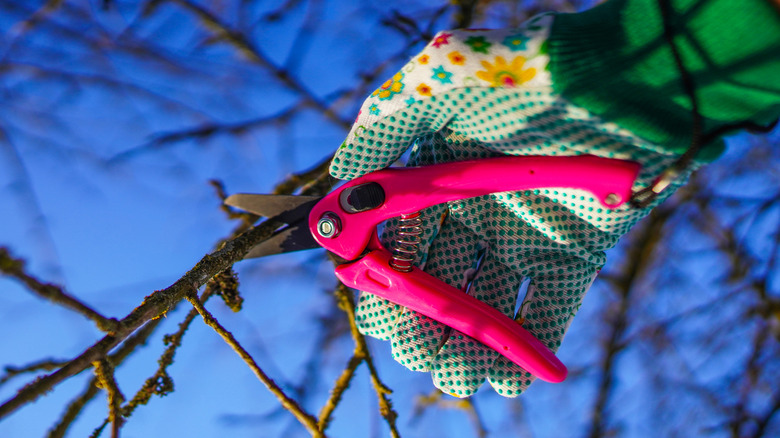Can You Prune Your Neighbors' Overhanging Branches Or Shrubs?
Even the best neighbors can have their flaws. Sometimes, these manifest as overhanging branches and shrubs that make their way over a fence and start invading your property. Maybe your neighbor is elderly and has a hard time looking after their backyard; maybe they just don't have the greenest of thumbs; or maybe they just don't feel like doing the work. Either way, it's fair to wonder whether you're allowed to prune your neighbor's overhanging branches or shrubs.
If you're finding yourself in this situation, the good news is that yes, you can generally trim overhanging branches and shrubs that spread to your property. However, there are a lot of caveats to keep in mind if you want to avoid getting into trouble. In addition, the rules vary depending on where you live, so make sure to look into your local regulations and bylaws before grabbing the shears.
Speaking with your neighbor before cutting branches is always the best first step. Not only is it the neighborly thing to do, it's also the safest and best approach for you. If you trim the branches improperly, you could end up being liable for the entire cost of the tree's replacement, which can easily reach thousands of dollars. It could be hard to deal with difficult neighbors you don't get along with, but having this conversation could end up saving you a lot of trouble down the line.
How to deal with a neighbor's overhanging branches
No matter where you live, there are a few things to keep in mind before you touch your neighbor's tree or shrub. First of all, you are only allowed to cut branches that are on your property. This means that you need to know exactly where the property line is, and if you don't have a fence to make that line super clear, it can be a bit tricky. Also, you're not allowed to enter your neighbor's property to do the trimming.
Secondly, if you damage the shrub or tree's health or structural integrity when cutting the offending limbs, you'll be liable for the cost of replacement. While the law is technically on your side when you're removing overhanging branches, it's on your neighbor's side as soon as their tree sustains any injuries as a result. Your neighbor would be able to sue you for damages. For example, they could ask you to replace the tree, which isn't cheap, but they can also sue for any out-of-pocket expenses incurred while removing the old tree or shrub, losses in property value, and even emotional distress caused by the loss of the tree.
If you really aren't able to get consent and cooperation from your neighbor to trim the tree, and especially if you don't know how to prune trees the right way, you should consider hiring a professional. An arborist will know exactly how to handle the issue without damaging the tree, which can save you a lot of money and trouble down the line. They can also advise on whether tree removal is the right decision — for example, if it's decaying or endangering your home in any way.

